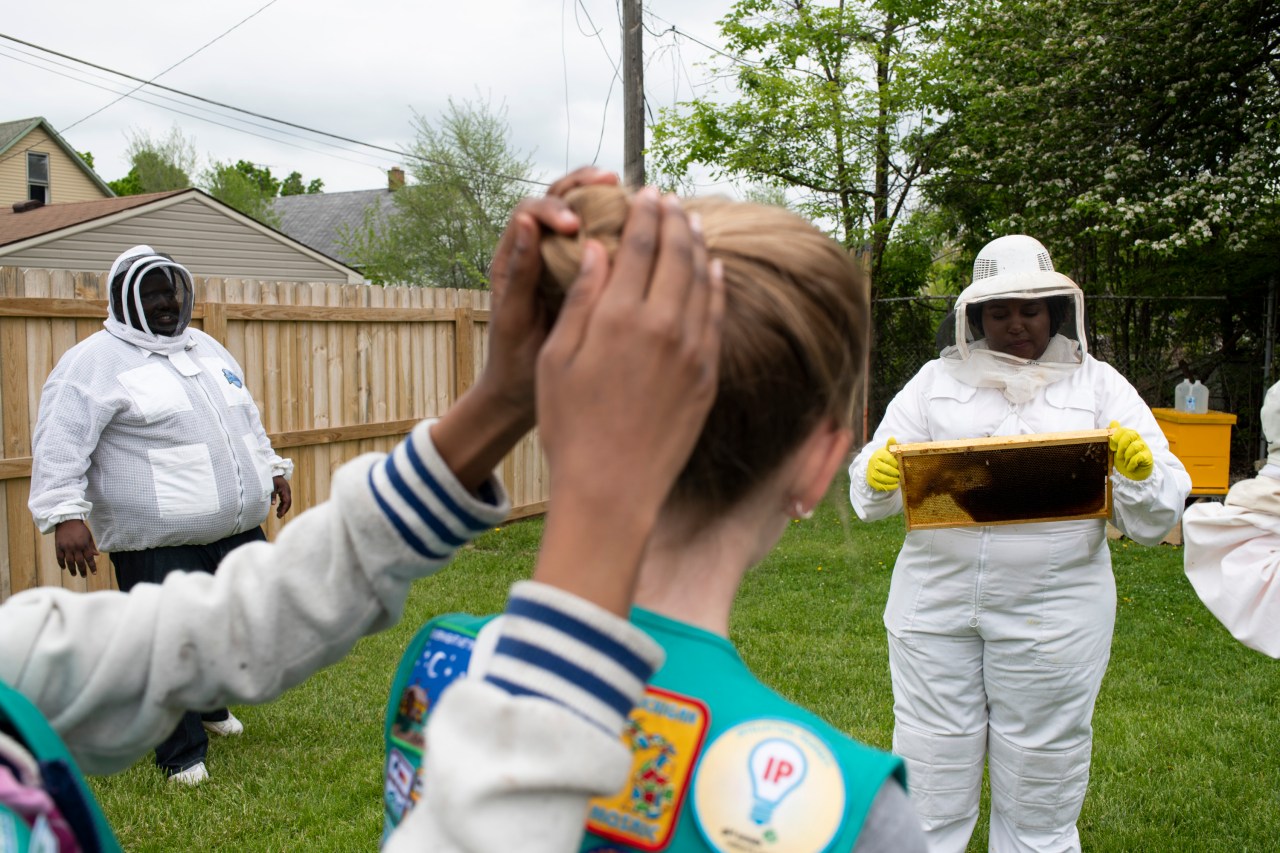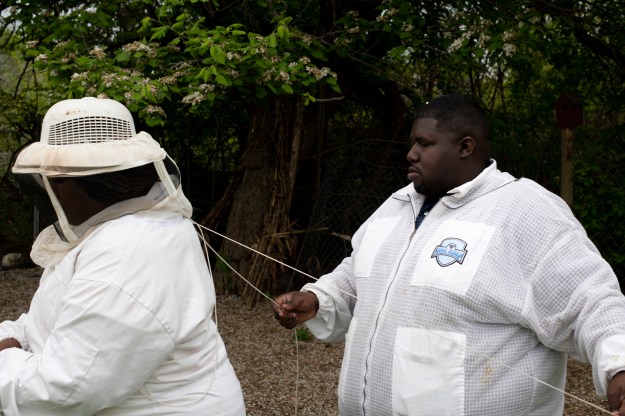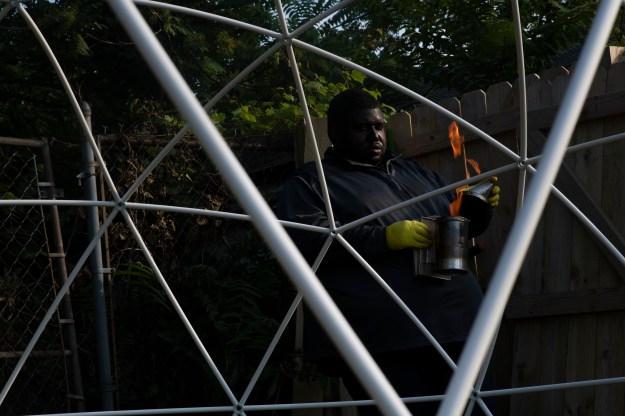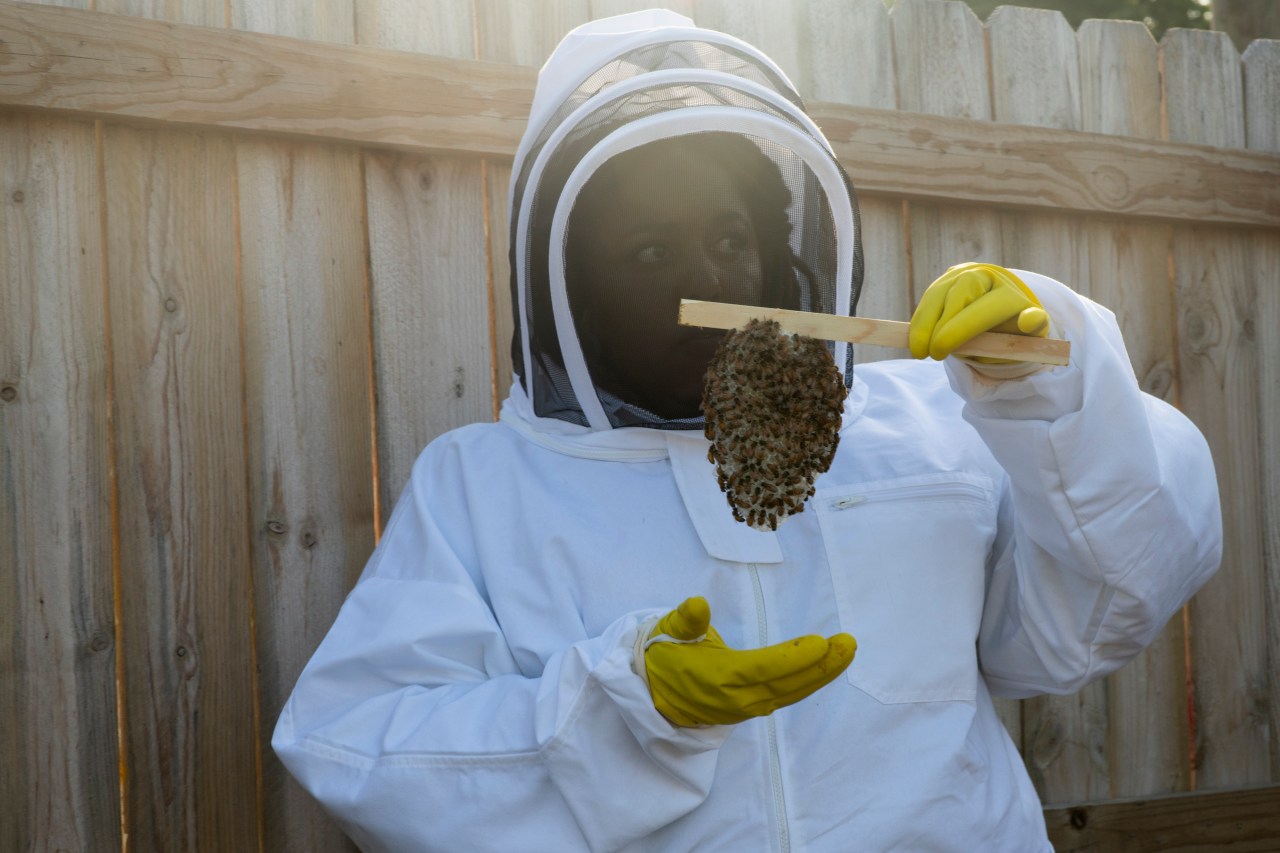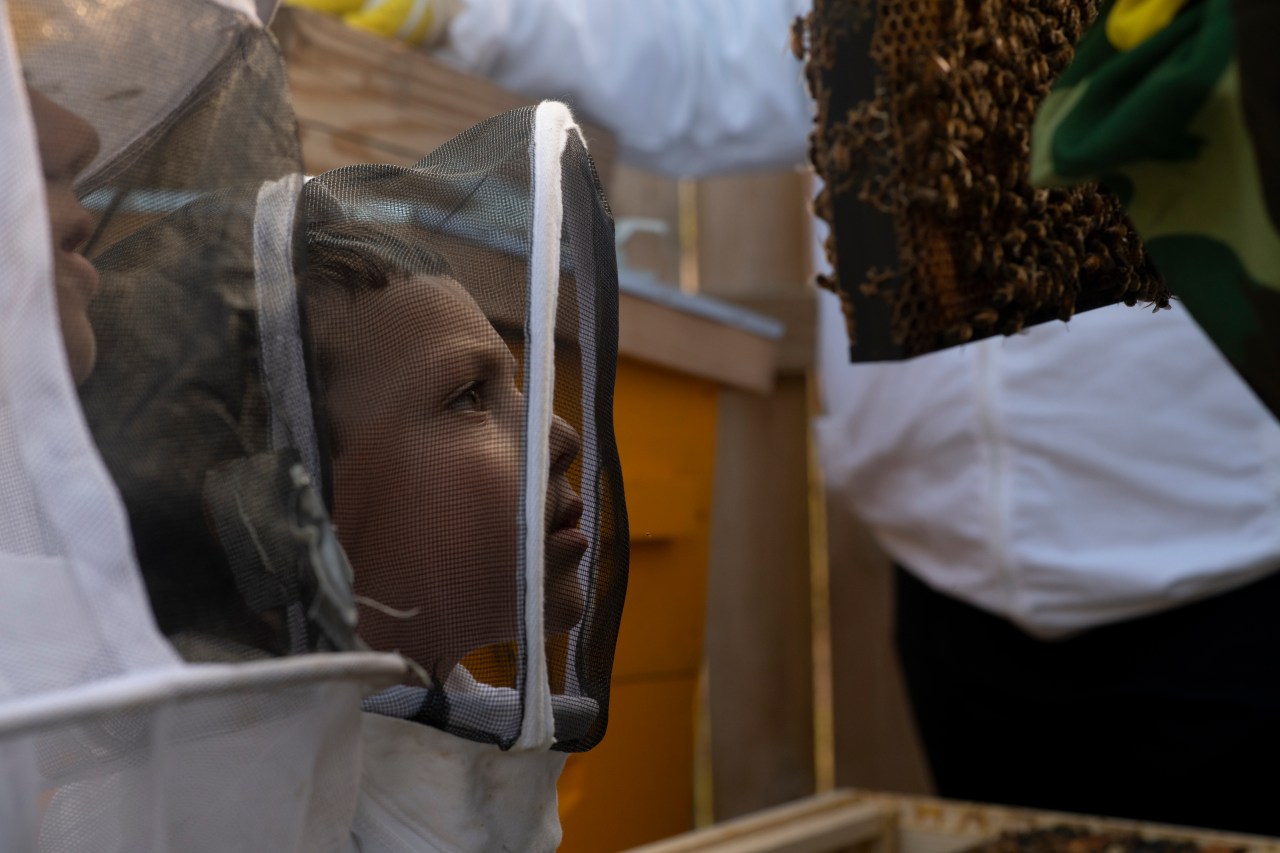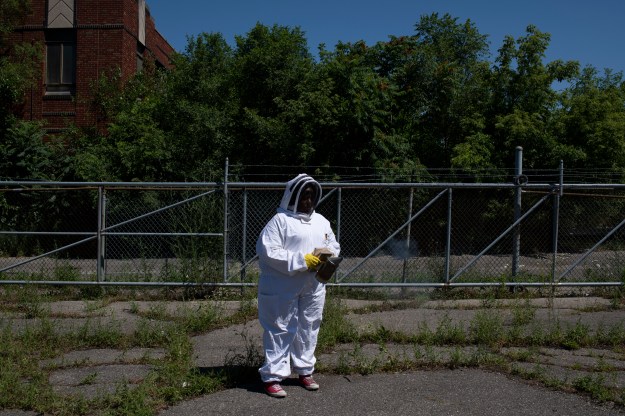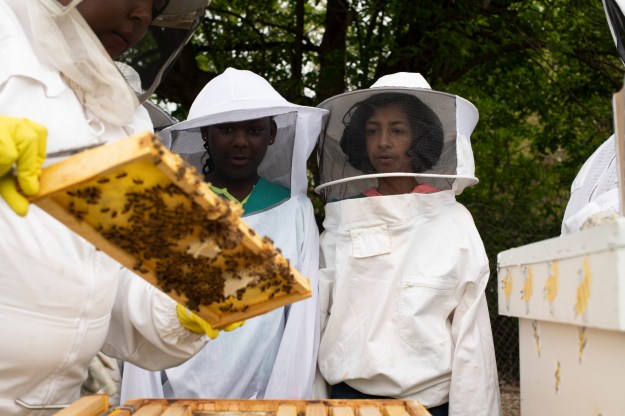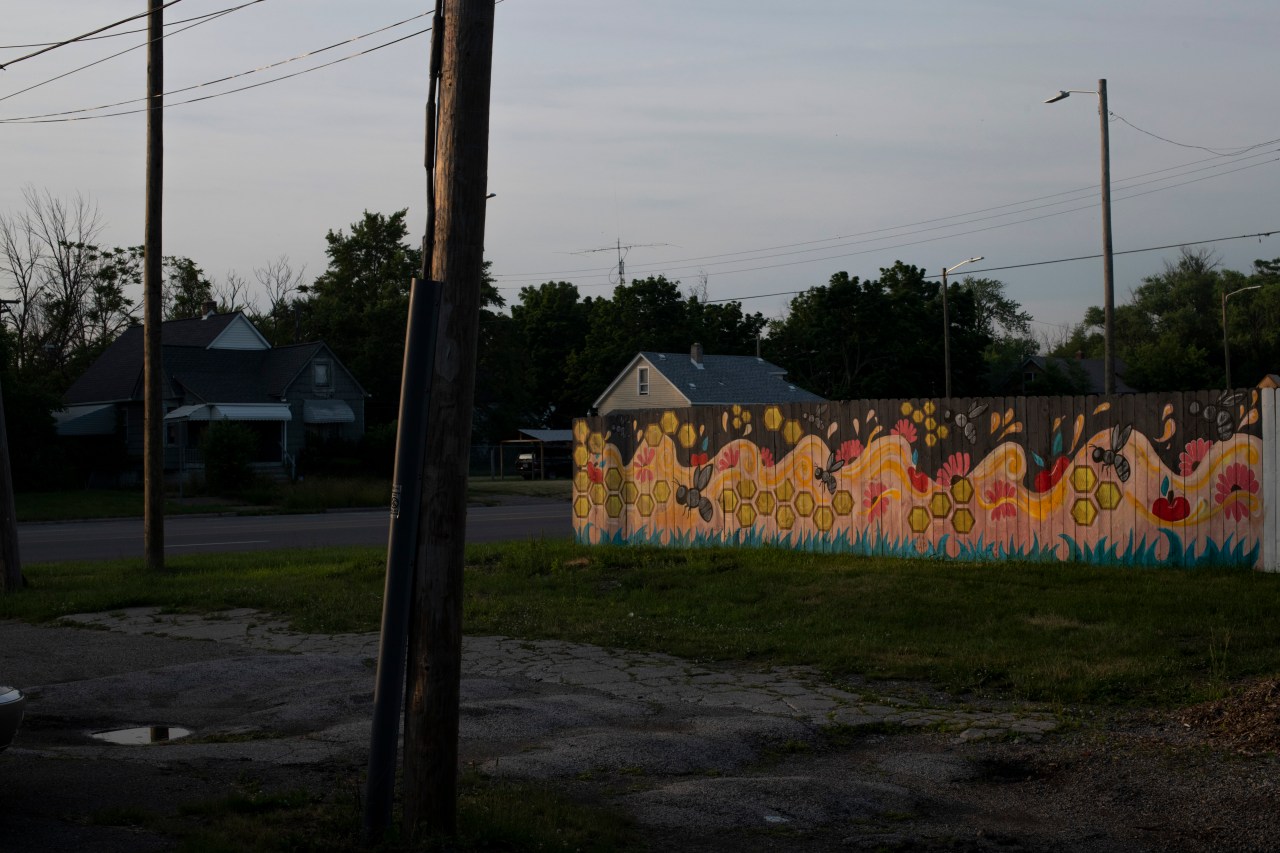Nicole Lindsey and her partner, Timothy “Paule” Jackson, always dreamed of renovating one of Detroit’s 72,173 vacant lots. He sees the lots, which have mostly become junkyards, as a sign of legislators’ ambivalence about the health of people of color in Detroit’s inner city. Lindsey and Jackson were looking for a way to address the well-being of their community but weren’t sure how.
Inspiration struck when Jackson got a cold in December of 2016 that left him with a painful cough that doctors couldn’t figure out how to cure. It was local honey—which he picked up at a store in Ferndale, Michigan—that eventually did the trick. This discovery led him to research the health benefits of honey, and what followed proved something of a revelation. One that drove the two to set up their own hives.
They realized that this was something that could benefit their community too, both culturally and environmentally. In early 2017, the pair pitched a beekeeping project to Detroit Soup, a crowdfunding nonprofit, which granted them $1,600 to purchase a vacant lot on East Warren Avenue, learn about beekeeping with Sweet on Detroit’s Bee-ginner Beekeeping program, and acquire a hive.
Today, Lindsey and Jackson give regular tours of their urban bee farm—which they named Detroit Hives—and have expanded to 32 hives across four lots. They host all kinds of guests, from Girl Scouts to tourists who find the hives through a partnership with Airbnb. She told photographer Rachel Woolf that it’s rewarding for Detroiters to “see somebody from their community doing something completely different.”
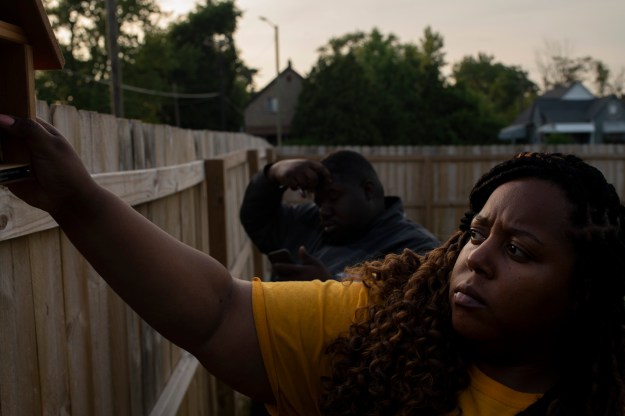
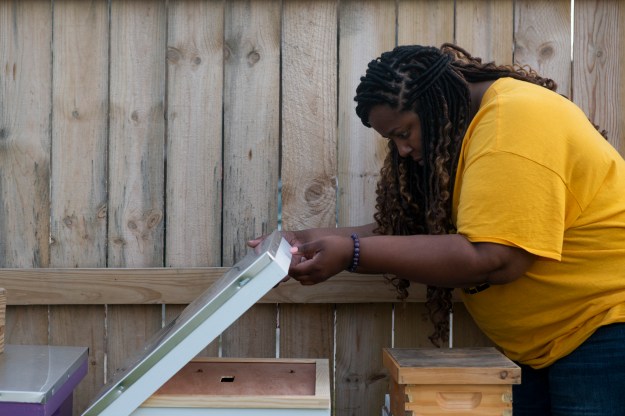
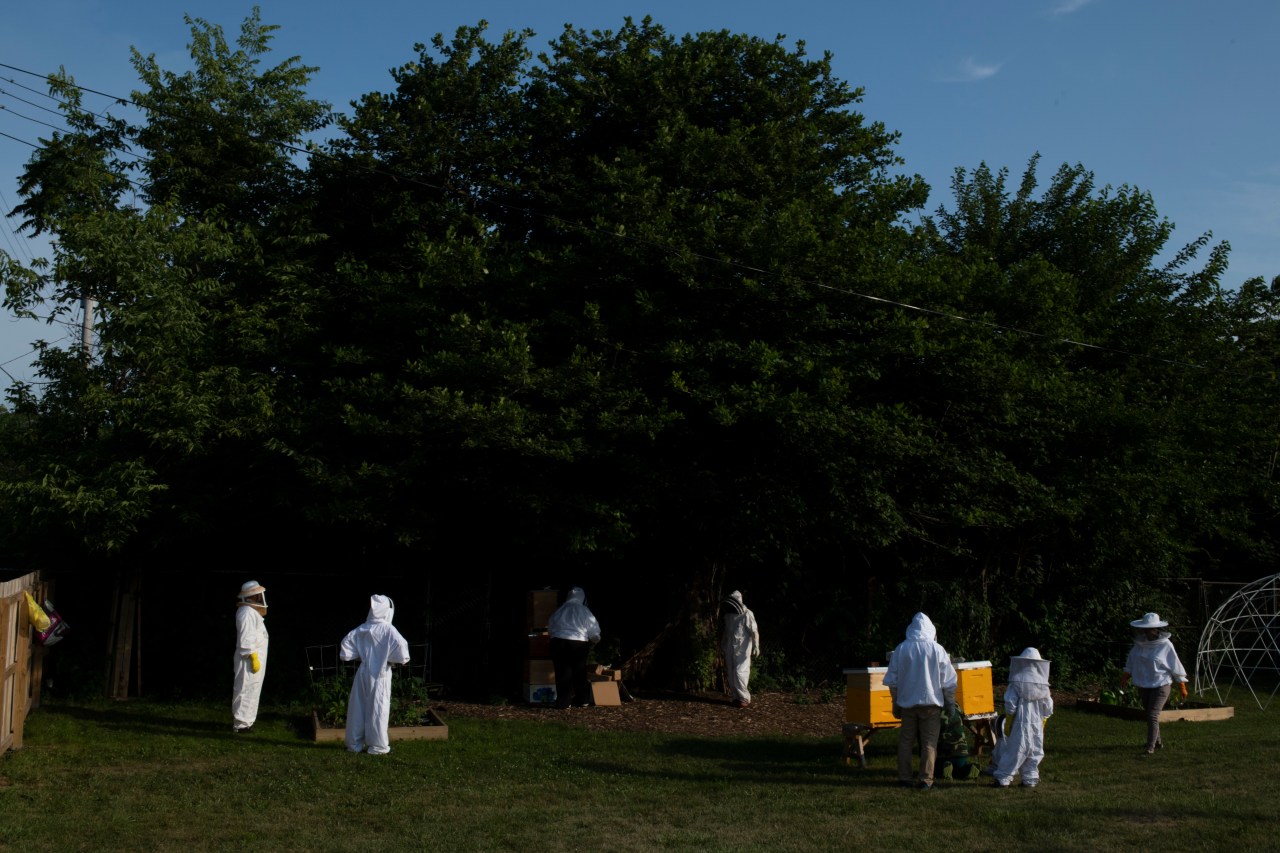
Their work also makes Detroit a more sustainable city. The hives encourage a population of native bees, which are always at risk in urban areas. The presence of bees encourages the growth of wild vegetation and aids the work of urban farms that have popped up around the city. Bees are responsible for pollinating 70 of 100 crops that humans consume, so by keeping bees healthy, Lindsey and Jackson help keep their city healthy too.
“Work hard, stay bumble” is written across the shirt she wears as she explains the importance of beekeeping to visitors. It’s Detroit Hive’s slogan, highlighting the way the organization encourages the revitalization of inner-city Detroit. Lindsey and Jackson call their hives “a co-working space” because their efforts encourage other community members to interact with the neighborhood’s environment in a way that helps bees do their important work as pollinators. By improving their community for both humans and bees, Detroit Hives stays true to its mission to make Detroit “a great place to bee.”
